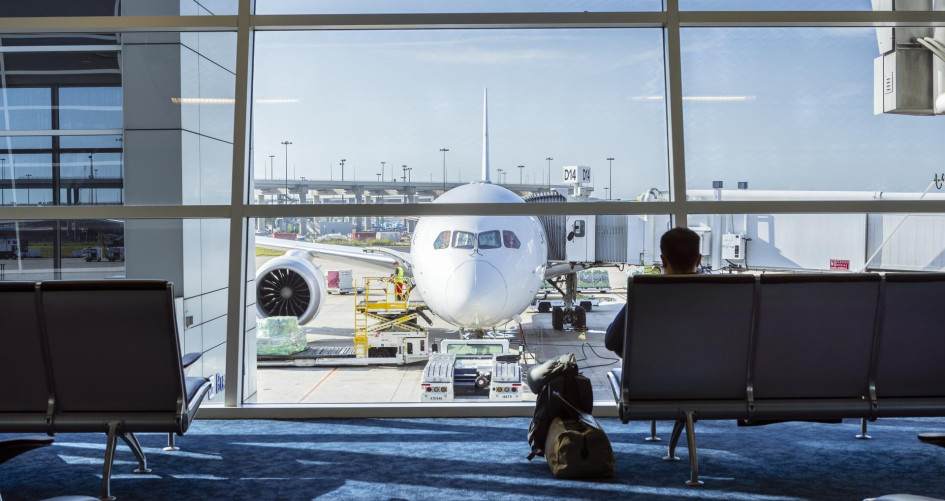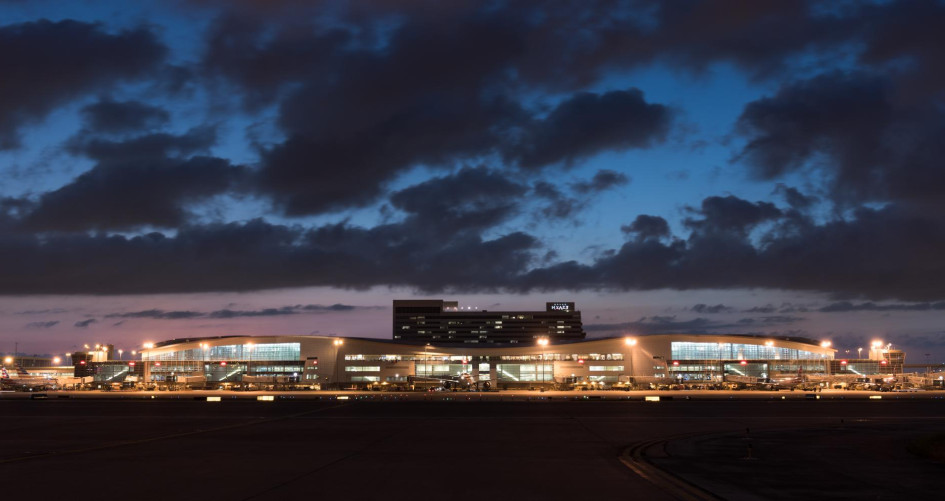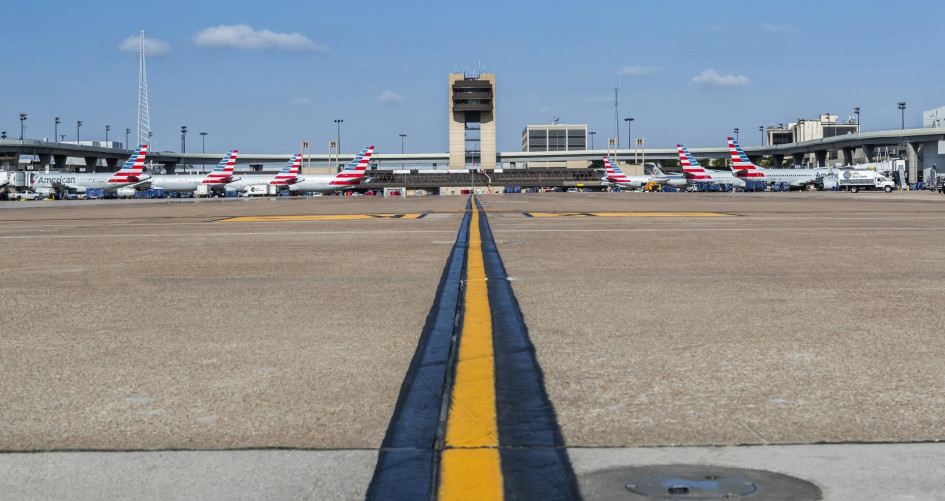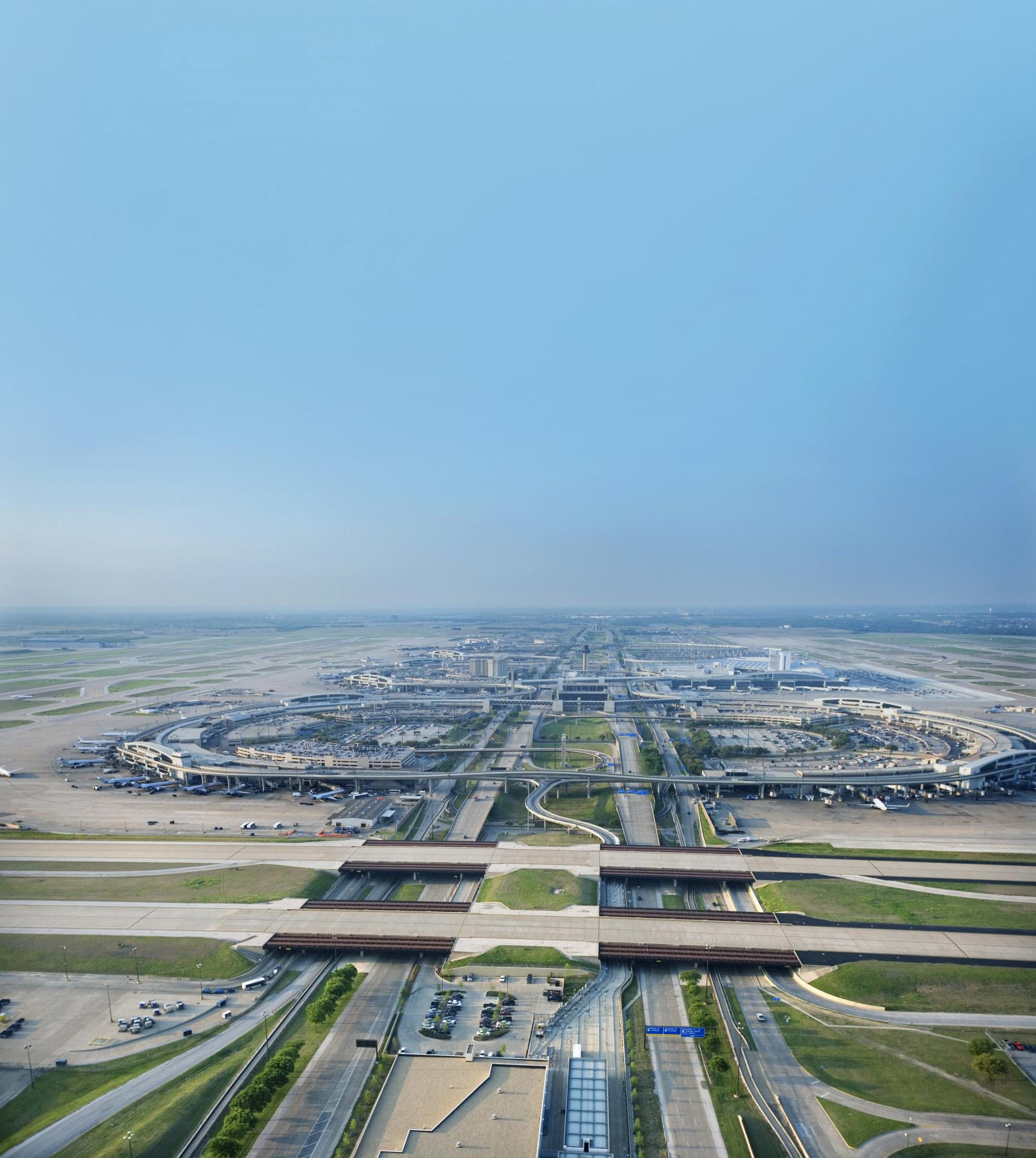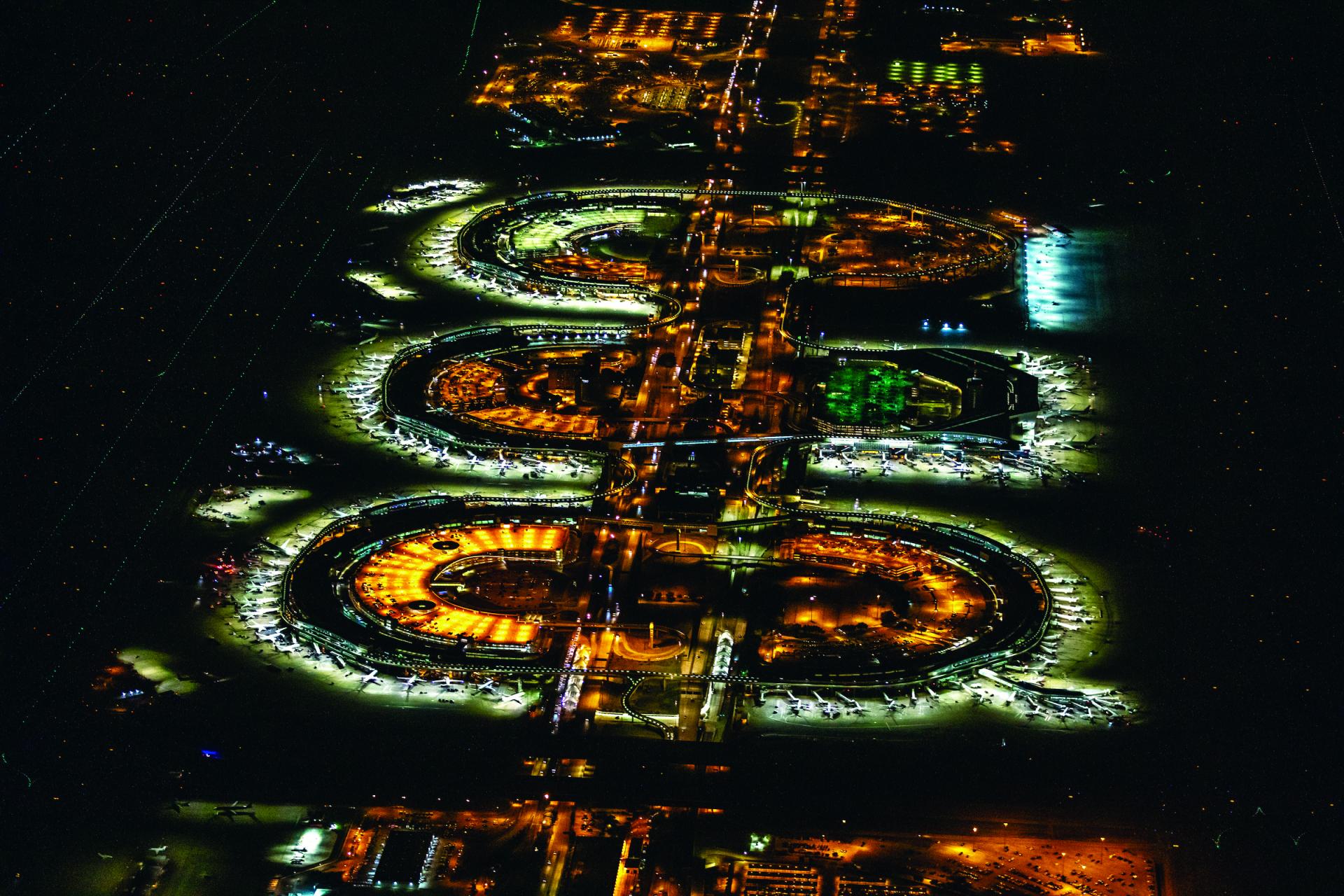As the first carbon neutral airport in North America, Dallas Fort Worth International Airport (DFW) continues to explore innovative ways to reduce its carbon footprint. In August 2017, DFW implemented the Renewable Natural Gas Initiative and began transitioning its compressed natural gas (CNG) vehicle fleet to renewable natural gas (RNG) produced from local landfill gas. Through this initiative, DFW has dramatically reduced vehicle fleet emissions – the second largest segment of its carbon footprint.
The RNG Initiative embodies DFW’s approach to sustainability because it demonstrates financial, operational, environmental, and social benefits to the airport and surrounding communities.
Key facts
- As of June 2020, 70% of the natural gas used in DFW’s vehicle fleet is RNG.
- To date, DFW’s RNG Initiative has eliminated the emission of 16,820 tonnes of CO2, which is equivalent to removing over 3,600 passenger vehicles from the road for one year.
- The transition from CNG to RNG lowers DFW’s operations and maintenance (O&M) costs by USD 1 million per year.
The challenge
DFW recognizes that emissions from its operations contribute to climate change. Texas is already experiencing increased drought, heat waves, and more severe storm events. These changes impact airport infrastructure and assets – degrading pavements, runways, buildings, and vehicles more rapidly. Through the use of RNG, DFW is actively working to reduce its carbon footprint and play its part in addressing climate change.
The solution
As the largest carbon neutral airport in the world, DFW continually strives to find new ways to reduce emissions. RNG plays a key role in addressing one of the largest contributors to DFW’s carbon footprint – its fleet.
As part of its commitment to climate action, DFW established its first carbon reduction targets in 2015. DFW’s achieved its 2020 Strategic Plan goal to reduce carbon emissions by 15 percent per passenger two years early. DFW has now set an ambitious target to achieve net zero carbon emissions by 2030, supporting the United Nation’s Race to Zero campaign.
Helping the planet
RNG is identical to compressed natural gas (CNG) but is produced from a renewable source rather than a fossil source. RNG is derived from biogas (methane) naturally generated by the decomposition of organic waste at landfills, wastewater treatment plants, and agricultural facilities. Capture and combustion of this methane, which otherwise would be released to the atmosphere, results in lifecycle greenhouse gas emissions reductions.
Through the RNG Initiative, DFW has reduced its carbon footprint, improved air quality, and lowered operating costs, demonstrating that sustainability makes good business sense.
Helping people
The results of two decades of sustainability programs and efforts have transformed DFW into a global leader in the aviation industry and a strong community partner. DFW’s Strategic Plan and Sustainability and Diversity programs support the United Nations’ 17 Sustainable Development Goals (SDGs). The programs and initiatives at DFW Airport directly advance 16 of the 17 UN SDGs.
DFW’s supply of RNG comes from landfill facilities in north Texas. The use of locally produced RNG supports jobs in the renewable energy sector and bolsters the region’s economy.
The Airport engages with a broad range of stakeholders to build advocacy, develop business diversity, provide economic opportunities in North Texas, and support employees. It is proud of its efforts to create a diverse and inclusive workforce for more than 2,000 airport Board employees and over 60,000 additional on-airport employees, correlated to Decent Work and Economic Growth (SDG8).
Under the United States Environmental Protection Agency’s (USEPA) Renewable Fuel Standard, credits are generated through the production of advanced biofuels, including RNG, for transportation purposes. DFW provides a transportation end use and plays a key role in the generation of these credits. The sale of the credits generates annual revenue for DFW, reducing operations and maintenance (O&M) costs.
Spillover effect
Natural gas-powered vehicles have been playing an active role at U.S. airports for over two decades, with more than 40 airports across the country running their ground transportation fleets on CNG, according to Clean Energy.
As an early RNG adopter, DFW has also demonstrated that where fleet electrification is not immediately feasible due to battery limitations and route constraints, RNG represents a “drop-in” renewable fuel solution for airports looking to achieve emissions reduction targets. The transition to RNG requires no new infrastructure on airport property and no capital investment to implement, since RNG is delivered through existing natural gas pipeline infrastructure.
In addition to helping lead the transition to RNG at other airports, DFW actively shares its practices and lessons learned with other organizations and municipalities. DFW Airport partners with the North Central Texas Council of Governments (NCTCOG) and the Dallas-Fort Worth Clean Cities Coalition to highlight the Airport’s use of RNG and advance the adoption of alternative fuels in the North Texas region. To learn more about DFW’s Sustainability Initiatives, visit www.dfwairport.com/sustainability/.




Images owned by the activity partners, all rights reserved.
